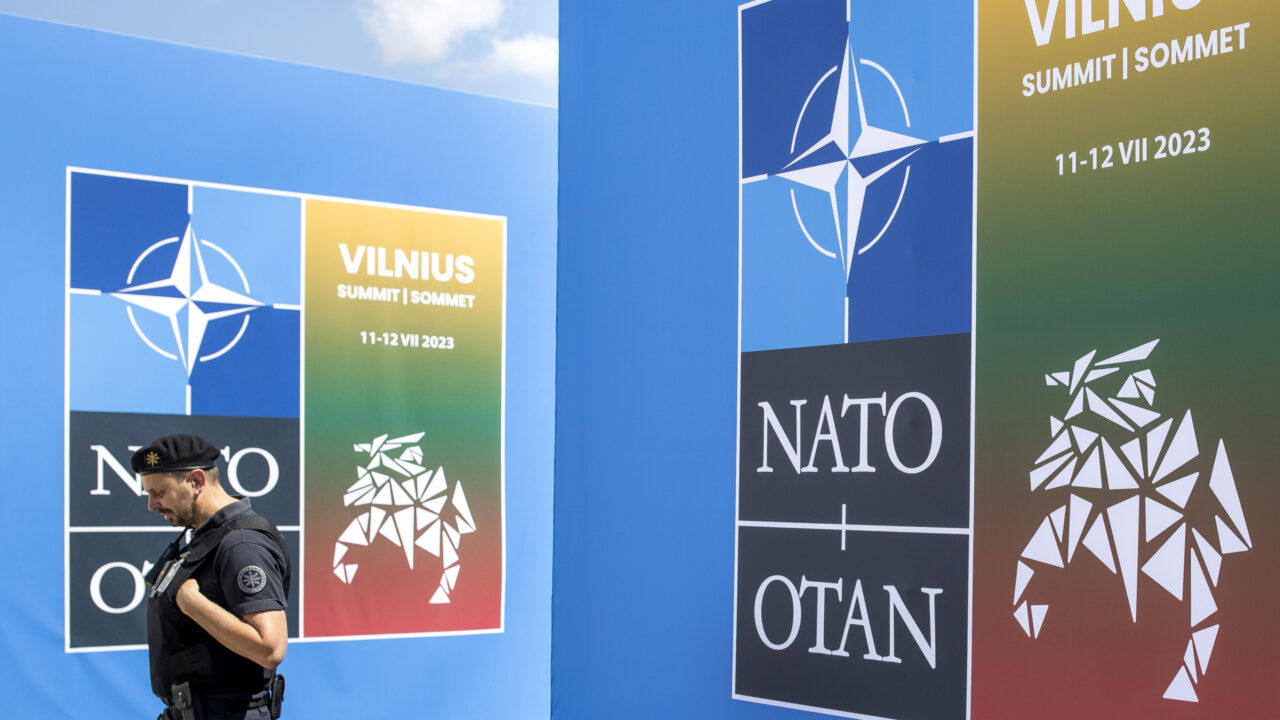On the outside looking in: Why NATO should invite Ukraine to join the alliance at the Vilnius summit
NATO should offer an invitation to Ukraine to join to create the conditions for a lasting peace
The most difficult question for NATO leaders at the upcoming summit in Vilnius in July is how to fulfill its 2008 Bucharest summit promise that Ukraine will become a NATO member. The Ukrainian government has requested that Ukraine get an invitation to join the alliance in Vilnius. A few countries, led by the United States, oppose this idea. Their main argument is that it is difficult to envisage NATO membership for a country at war.
But Ukraine is not asking for membership now, only for an invitation. Ukraine wants the Vilnius summit to formalise the statement of NATO secretary-general, Jens Stoltenberg, that all NATO members have agreed that Ukraine will join once the war is over. A formal commitment of that sort will help the country to mobilise, increase morale, and inspire more reforms. The invitation to join does not mean the process will be fast. Even for ‘perfect’ candidates such as Sweden, this process has already taken more than a year. For Ukraine, it might take much longer and involve difficult reforms.
Expectations for Vilnius
The summit currently seems set to offer Ukraine a package of incentives short of a membership invitation. This package would include the creation of a NATO-Ukraine council, guarantees of military and financial support (not to be confused with security guarantees), and a statement about future membership that will take advantage of “constructive ambiguity”. This diplomatic nicety implies that, to avoid a divisive debate at the summit, NATO leaders would agree on language for the final communiqué that is open to interpretation and can satisfy all sides.
NATO’s reticence has inspired Ukraine to fight for what it was promised at Bucharest
NATO’s reticence has inspired Ukraine to fight for what it was promised at Bucharest. President Volodymyr Zelensky even questioned whether he would attend the summit if there is no signal from NATO on Ukraine’s membership bid. Zelensky is himself constrained by Ukrainian public opinion, which strongly supports joining NATO.
The key point for NATO leaders to understand is that Ukraine will only become a member after the war, so there is no question of applying NATO’s Article 5 to the current situation. The war’s end, for the purposes of enabling Ukraine’s NATO membership, could be defined as the moment when all NATO members and Ukraine agree that it is over. The result of the war will then be a starting point for a reflection on how NATO’s treaty will apply when Ukraine joins.
The risks of not inviting Ukraine to join NATO
As the preceding discussion implies, the debate on Ukrainian NATO membership has focused on the risks of admission. It has often disregarded the risks of not inviting Ukraine to NATO.
Without an invitation to join NATO, the Ukrainian government will lack the incentive to purse various important reforms, including promoting democratic civilian control over the military. Many such potential reforms are not part of Ukraine’s European Union accession process. If Ukraine’s partners care about reforms in Ukraine, they should invite the country to join NATO.
More immediately, concerns about whether Russia might escalate the war if a NATO invitation need to take into the account the possibility that Russia will escalate if Ukraine is denied an invitation. If Ukraine has no clear prospect of joining NATO, it will be in a grey zone and thus a Russian target, even after the war ends. Russia will assess the West as weak and might interpret NATO’s unwillingness to invite Ukraine as carte blanche to continue the war on Ukraine. A similar dynamic occurred in 2008, when NATO declined to offer Ukraine and Georgia a membership action plan, which led to Russian aggression against both countries in just six years.
The countries opposing Ukraine’s invitation are also worried that such a step might spark divisions within the alliance. But NATO unity would likely suffer more if the alliance decides to postpone an invitation. Most NATO members support Ukraine’s NATO membership: at least 22 of them have publicly stated their support. It is unlikely that they will all go quietly at Vilnius.
Most importantly, the reluctance to extend an invitation is causing concern in Ukraine that its Western partners consider Ukraine’s membership a bargaining chip in possible future negotiations between the West and Russia. Such a decision would grossly ignore Ukraine’s position and the policy of “nothing about Ukraine without Ukraine”.
Zelensky should abandon his idea of not going to the NATO summit. Everyone will lose if he is not there, even if there is no clarity in the wording of the final communiqué. Zelensky, with his presence, can underline both the risks of leaving Ukraine out of NATO and propose a sequencing that involves an invitation now and membership after the war ends. The invitation at Vilnius would be an important, even historic, signal to millions of Ukrainians that the current, terrible war will be their last.
The European Council on Foreign Relations does not take collective positions. ECFR publications only represent the views of their individual authors.



